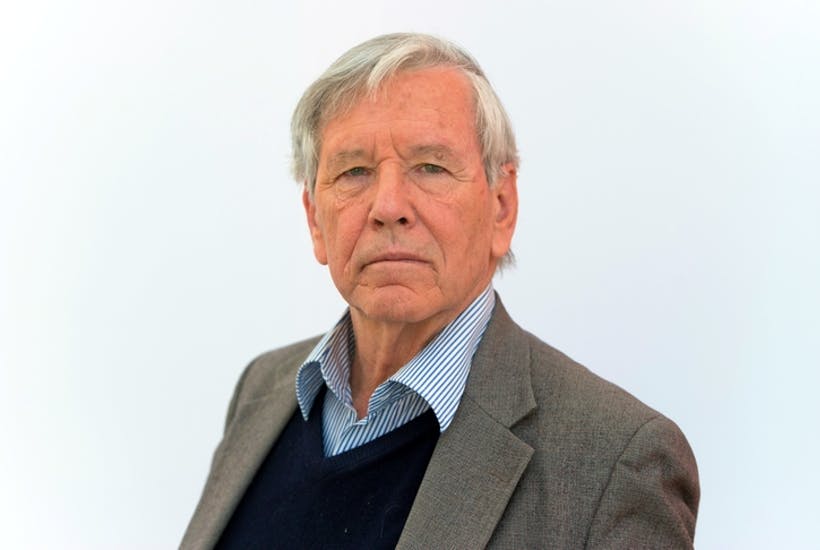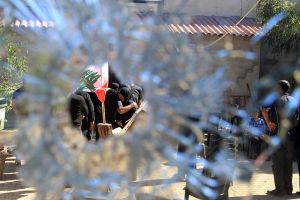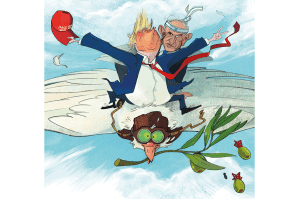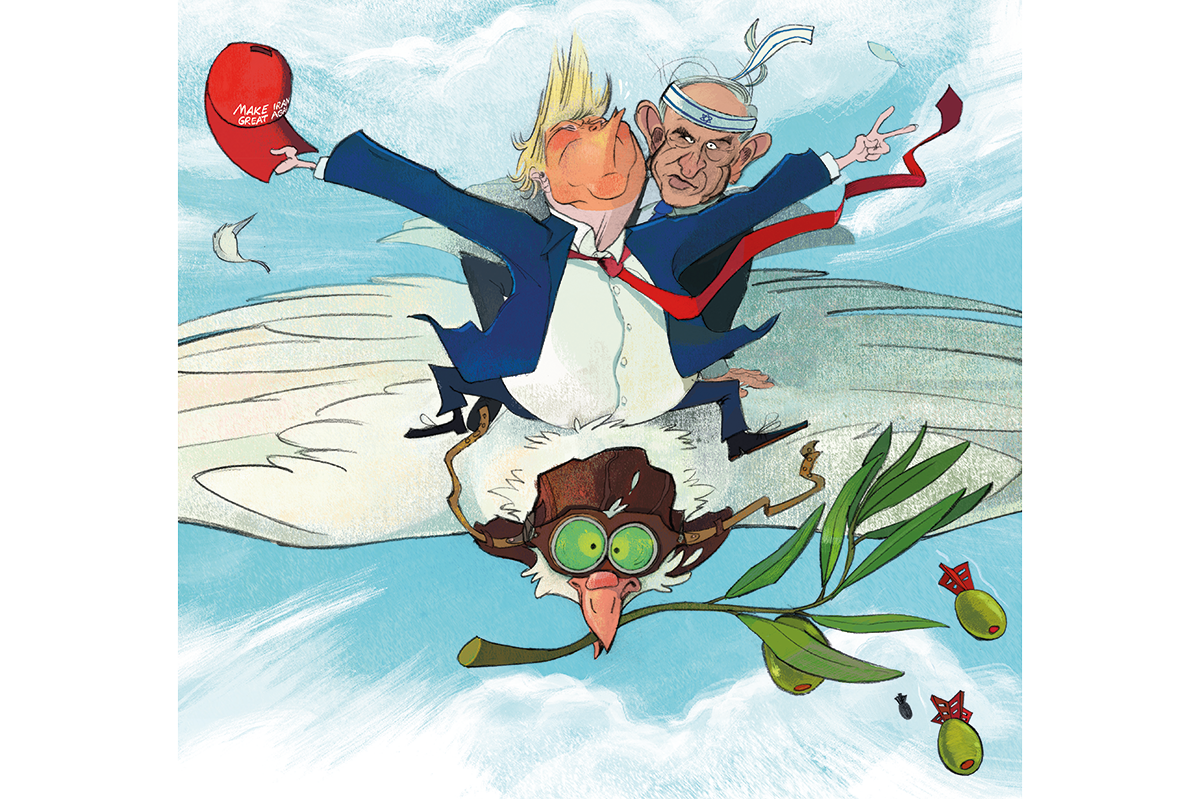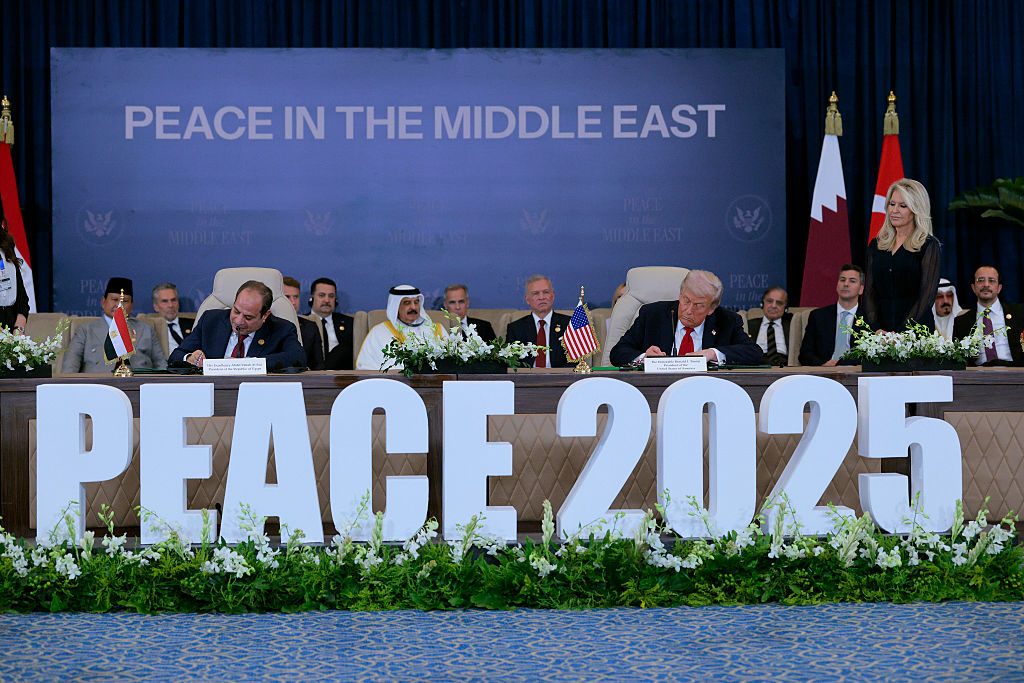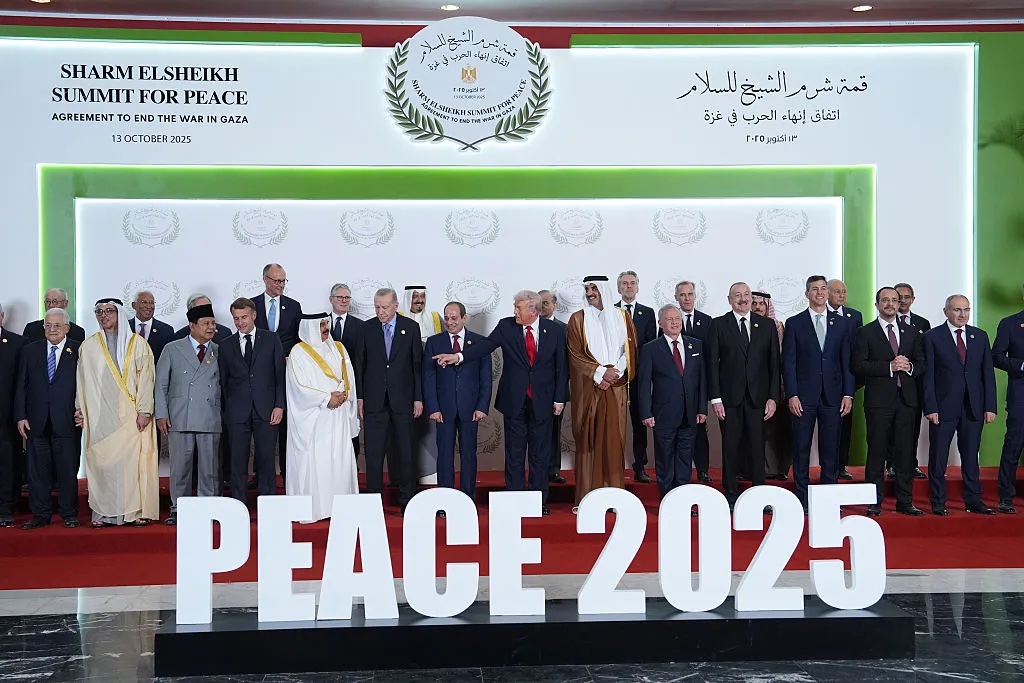In Western democracies, literature no longer matters to politics. Once, literature and politics could co-exist on the same typewriter or in the same person: George Orwell in Britain, André Malraux in France. But that was a long time ago. Still, the powers of politics remain linguistic, whether bureaucratic or rhetorical: the war criminal at his desk, the elected representative on her Twitter.
Amos Oz, the Israeli novelist who died today aged 79, was living proof of the political powers of literature. In Israel, which is a Western democracy most of the time, Oz is seen as a great writer but a failed politician. In the West, he is seen as the still-living conscience of a political failure. Nothing shows us both sides of a story so well as a novel. And nothing occludes the quality of literature like politics.
Oz was the Everyman of Israel’s founding elite. There were elements of necessary imposture in this persona, but that is what fiction needs. As he eventually described in his autobiography, A Tale of Love and Darkness (2002), Oz, the global face of kibbutz socialism and Peace Now, was born into a prominent Revisionist family. The Revisionists were followers of Ze’ev Jabotinsky, who mixed liberal politics with the ‘Iron Wall’ approach to the Arabs. In the one-party state-in-the-making of Mandate Palestine, Labour Zionists already held the balance.
In 1949, when the new state of Israel held its first presidential election, Amos Klausner’s great-uncle Joseph Klausner, a historian and literature professor, ran and lost as the candidate of Menachem Begin’s Herut party. In 1951, Amos’s mother committed suicide; in his telling, she was a delayed victim of the Shoah. Two years later, aged 14, he turned left, moved to a kibbutz, and extracted a new surname from the heart of his old one. ‘Oz’ means ‘strength’.
*
Even at their peak, the kibbutzim never constituted more than a fifth of Israeli Jewish society. Yet they monopolized the first three decades of Israeli statehood, until Begin’s belated triumph in the 1977 elections. Their strength was cultural as well as political, and literature was party politics too. Revisionist scholars like Benzion Netanyahu — father of Binyamin Netanyahu and Joseph Klausner’s heir as editor of the Encyclopedia Hebraica — found themselves excluded from academia, and even pushed overseas. The young Oz had allied himself with the strength in the land.
Oz subordinated himself to the ideology of his new family. When the small-town stories of Sherwood Anderson showed him that the seeds of literature existed even in the insular kibbutz world, he petitioned the kibbutz committee for the right to write. They gave him afternoons off. But a novelist, a spinner of words and speculations, is an unlikely spokesman for the strong, silent and collectivist virtues of the kibbutz. The reason that Oz wrote great literature is that he was a political failure, even if he did share his royalties with the kibbutz.
The sub-Chekhovian stories of Anderson appealed to the young Oz more than the ‘virile novelists’ who wrote ‘Hemingway-like stories about kibbutz life’. And Anderson’s stories, he later realised, carried him back to ‘what I had put behind me when I had left Jerusalem’: the ‘tawdriness’ of his parents’ lives, a ‘dreary tangle of sadness and presence, of longing, absurdity, inferiority and provincial pomposity, sentimental education and anachronistic ideals, repressed traumas, resignation and helplessness’.
This is the material of literature, not politics. In Oz’s novels, the materiality of politics dominates the waking day, and the dreams and nightmares of literature the sleepless nights. In Don’t Call It Night (1994), set in a fictional version of Arad, the desert town to which Oz moved when he broke free from the kibbutz, Noa relates her and her husband Theo’s loneliness through the split of politics and culture. That distance is also the distance between Israel, late fruit of Romantic nationalism, and the West that repudiates Israel as its ugly reflection:
‘When we got home we locked the balcony door and made some herbal tea and put on the TV to see if there was anything worth watching, and as it happened there was a program of excerpts from Artur Rubinstein’s last concert before he died. Then I went to have a shower and Theo shut himself up in his room to listen to the news on the World Service from London.’
*
While Oz became a global figure for his fiction and his criticism of the Israeli state after the invasion of Lebanon in 1982, the Israelis rejected his politics. The successes of Zionism empowered the Revisionists as well as its failures. Unlike the Ashkenazi elite, Jewish immigrants from Persia and the Arab states had not shed religion in order to become political in the European style. Unlike the Labour elite, Jewish immigrants from post-Soviet Russia were atheists, but also nationalists who loathed the left. To this we might add two factors that Oz embodied.
One is the failure of socialism over time. Even in the rare case of Israel, where it had laid the foundations of a state, socialism failed in little more than a generation. After Begin’s victory in 1977, Israel began its turn towards a market economy. The exporter of oranges became a hi-tech superpower. Oz had nothing but condemnation for this repudiation, even though his novels admitted that religion and kinship were more powerful than political ideals. That was why they should be repressed, like the Panther in the Basement of his novel of his childhood in Mandate Jerusalem.
The second factor is the failure of the ‘peace process’. Oz, who fought in the wars of 1967 and 1973 was a brave and early proponent of what became known as the ‘two-state solution’. The historians will argue over who was most responsible for its failure, but they will be clear about the electoral consequences for Israel’s Labour party. In the early 2000s, Labour stuck with the Oslo Accords and the PLO after Arafat wriggled out of the Camp David and launched a war of suicide bombings that followed. This week, after Netanyahu announced elections, the Labour-Zionist Union rump polled only 7%.
Oz’s death, like that in 2014 of his adversary Ariel Sharon, who began with Labour and the kibbutz but turned right, marks the severing of the last connections between modern Israel and the Israel of the pre-State and founding years. The Revisionists have inherited ‘the Land’, even if they don’t know what to do with it. The Western liberals who raised up Oz as an image of the kind of Israel they could live with, and even associate with in public, are still dreaming, like the fantasists and depressives of Oz’s fiction. And the lives of Jews in Israel and all over the world are, as in Oz’s life and novels, entwined with the fate of the Jewish state.
*
In one of the final paragraphs of A Tale of Love and Darkness, Oz follows his mother to the scene of her suicide, the kitchen of a flat on Ben-Yehuda Street in Tel Aviv; a street named for the creator of modern Hebrew:
‘Just before the War of Independence the room where my mother was staying had been let to the head of Haganah intelligence, Yigael Yadin, who later, when the state was established, became Major-General Yigael Yadin, Deputy Chief of Staff and Head of Operations of the newly-formed Israeli army, but continued to rent that room. Consequently the kitchen where my mother sat up that night, and the previous night too, was a historic kitchen, because during the War several informal meetings were held there that crucially shaped the conflict. There is no way of knowing whether my mother thought about this in the course of that night.’
What remains, as Oz admitted in his fiction if not in his politics, are the pressures of history and the failings of humanity. This is why Oz’s politics had become almost irrelevant by the time of his death. It is why his novels will endure, because they capture the vitality and desperation of a people compressed by geography and history, kinship and loathing. This is why they will continue to be read by anyone interested in the inner life of the Jews in the age of their ultimate powerlessness and powerfulness, the decades after the Holocaust and that most literary of political achievements, the refounding of a Jewish state.
This article was originally published on The Spectator’s UK website.



